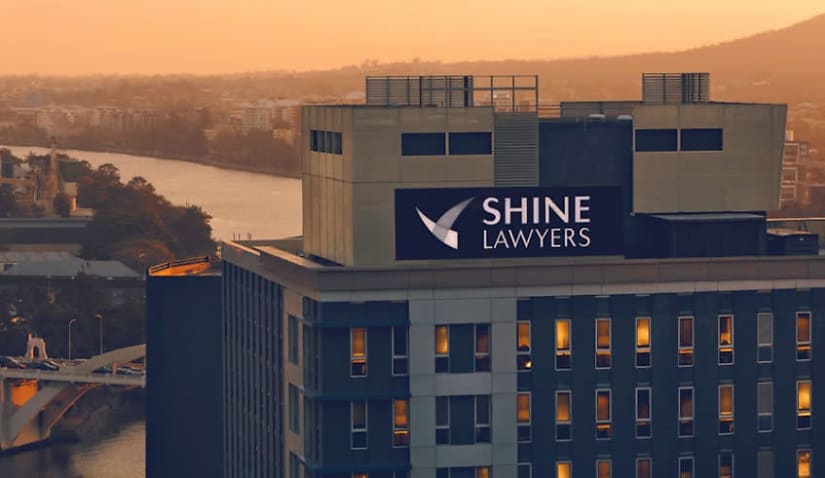Shine Lawyers, one of Australia’s biggest compensation and personal injury firms, may be open to negligence action brought by a former client whose serious injury application was significantly hindered by its delays, confusing advice and communication failures.

A woman’s almost nine-year delay in filing a serious injury application against a Pakenham-based horse racing company has been chalked up to the failings of her former solicitor with law firm, Shine Lawyers.
In granting the woman an extension of time beyond the six-year limitation period, Judge Patrick Over of the County Court said she has a “potential cause of action” against the legal practice. This was especially so if the extension request was refused.
While not a strong factor in his ultimate decision, Judge Over said the availability of this action supported the grant of an extension.
“There has been a delay largely because of Shine; the plaintiff was not the cause of or complicit in that delay,” Judge Over said.
In a statement, a Shine Lawyers spokesperson said: "While delays caused by a former employee affected the matter’s progress, we welcome Justice Over’s decision to grant Ms Proctor an extension to pursue her claim."
"Shine does not have carriage of this case, but we fully support Ms Proctor’s right to seek justice in her workers’ compensation matter and wish her the very best as it proceeds," the spokesperson added.
Shine was retained in April 2014 to assist the woman with a rejected workers’ compensation claim. From the early stages, she was advised about the limitation period for the damages claim and its expiry in September 2018, but it would be open to extend the time if needed.
The rejected workers’ compensation claim was the priority, and Shine worked to have this overturned in the Magistrates Court.
During this period, the woman said she spoke to Shine a number of times over the phone and raised concerns about the six-year limitation period, but was assured an extension could be obtained.
After the Magistrates Court made a decision in her favour, the woman said she called Shine to determine the next steps, but was unable to get in touch with any of the solicitors handling her case. Requests left with reception for calls back were met with silence.
She said she had a similar experience with Shine after the Magistrates Court matter was resolved by way of out-of-court settlement between November and December 2019, and again when she received an invoice that was larger than she expected in January 2020.
In February 2020, the woman was able to speak to someone at Shine and discussed her concerns. However, the legal practice manager would not respond until August with an apology for the delay and an indication she would seek authority to reduce the invoice.
The retainer was terminated in November 2020.
In submissions to the County Court, the woman said she “believed and trusted” Shine was doing everything to advance her case.
“I placed my trust in the Shine solicitors and believed they knew what they were doing and would do everything required by law to obtain compensation for my injuries in the common law claim,” she added.
Judge Over acknowledged Shine took steps before the limitation period expired by retaining a barrister to prepare documents, but the barrister provided advice that “would have been confusing”.
However, there were steps that Shine could have taken, including assuming the woman was not a worker and issuing a damages proceeding as of right without needing to go through the serious injury gateway and Magistrates Court proceedings.
It also could have assumed she was a worker and made a statutory impairment claim that would have suspended the running of the limitation period, or made a serious injury application and held it in abeyance pending determination of the Magistrates Court claim.
“With the benefit of hindsight, these were preferable courses to taking no step to protect the plaintiff’s common law interests before the expiry of the operative limitation period,” Judge Over said.
“Even after the worker issue was resolved in May 2019, Shine did not take steps to prepare a serious injury application.”
Judge Over was satisfied Shine’s failure was due to “inadvertence rather than the product of strategy”.
The findings were tempered because Shine did not provide material or evidence before the court, and it would be open to the firm to argue it acted reasonably in the context of the confusion of her case, “even though this would seem at best a partial explanation for the delay”.
Although the woman has reasonable prospects of succeeding in a professional negligence claim, Judge Over clarified the action would be for damages for the loss of opportunity to make and pursue a damages proceeding against the horse racing company.
“The action would be for damages for the loss of the opportunity to make and pursue a damages proceeding against the defendants.
“In the damages proceeding, the plaintiff would have the opportunity to try to obtain the full value of the loss and damages she claims for her injury, but in the professional negligence proceeding she would be limited to damages for the loss of opportunity that must take account of the chance of success and an assessment of what damages she could have received if she had succeeded,” he said.
On any view, Judge Over said the woman would only be able to recover “at best a fraction of her claimed losses”, and would also have to prove two cases, “which is likely to be more costly and time-consuming”.
The case: Tarryn Proctor v Grass & Caruso [2025] VCC 1607.
